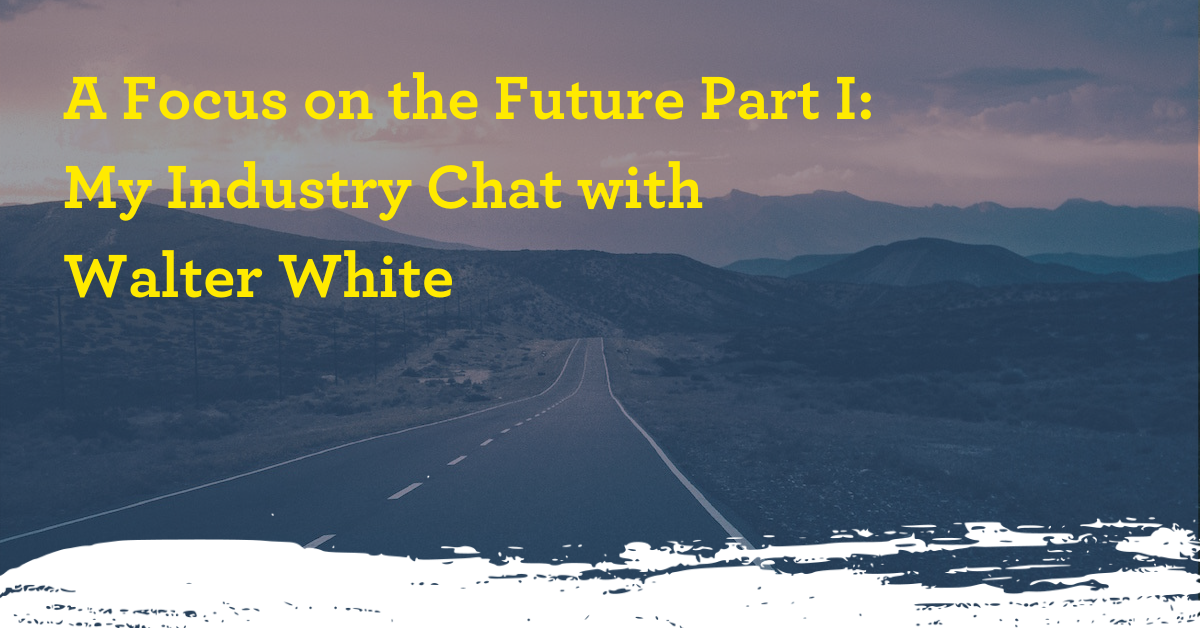I recently had the pleasure of sitting down with Walter White, President and Chief Executive Officer of Allianz Life Insurance Company of North America. We discussed the state of our industry, including how to address pain points through technology and client service. Here are some excerpts.
How did you get into the insurance business?
I started out working for an industrial distributor and then went to business school. After that I worked at Pepsi in a marketing role, and was planning for a family. As I thought about the importance of my own personal financial planning, I started to think about working in financial services. I had an opportunity to start with Mutual of New York and I wound up on the life insurance side. I chose the insurance business because I was motivated to do work that had greater meaning. You may have seen a letter recently from Larry Fink of BlackRock challenging companies to operate with social purpose, that CEOs will be held accountable to that standard. That’s always been one of the great things about our business: that we are providing a valuable service that really helps people. I think that gives us a leg up on some other industries that perhaps don’t have that connection.
In terms of tech trends, what will have the biggest impact on Allianz in the next three to five years?
You’ll hear the buzzword RPA, which stands for Robotics Process Automation. Gaining cost efficiencies and improvements in productivity will allow us to add value to the products. But even though we’re constantly looking for ways to reduce costs and replace repetitive tasks with technology, lifestyles will be affected because some jobs will be automated, which is something we have to watch. We also have more outward facing tools that make it simpler for customers to do business. These are a win-win because they’re sensitive to the way customers want to do business with us while also improving productivity. A third important technology trend is analytics and our accumulation of large amounts of data, much of which is underutilized. Going forward, mining of that data will inform how we design products, maximize the product value, and improve profitability.
Regarding those outward-facing tools, what are clients looking for?
They’re looking for both ease of processing transactions and customization. Compared to what’s available in other industries, certainly financial services companies, including insurance, have some catching up to do. Generally speaking, customers expect to be able to process many transactions online and are surprised when they cannot. For customization, when coming to your website, customers expect that you’re displaying the information you’ve already accumulated about them. So, our industry needs to catch up, then look for innovative ways to deepen client relationships.
What other disruptions do you see in the industry within the next five years?
When you think about disruption, it’s typically happening when there’s a pain point. The classic example is probably the video store, because when you think back to that business model, it was terrible. You’d have to drive there, find a movie you wanted to see, then it was never available and you’d have to find something else. As soon as another option became available, video stores closed overnight. In our industry, that’s where we need to be careful, in understanding the pain points.
Generally speaking, there’s a negative view of financial institutions; people don’t trust big insurance companies or banks. That’s a pain point that can be disrupted. Compare the service you get from a financial institution versus something you would associate with superstar service, like a five-star hotel, and you have another entry point for disruption. Business models can’t be rigid in the we do things just because that’s the way they’ve always been done. We have to be willing to consider customization and flexibility, to challenge those pain points and find a different way of doing things.
There are many companies in our space, and some partner better with FMOs than others. Allianz has been a major partner with FMOs. What is the value of the FMO, both today and in the future?
There’s huge value in distribution, independent of anything else, so FMOs are vital as a major distribution channel conduit to the independent advisors. As you know, we went through a process of rethinking our FMO relationships and trying to narrow down what had been many to a smaller group of more significant ones. Then along came the fiduciary rule, which accelerated a trend that was already in place, and you saw FMOs begin to restructure and do a lot of the things that broker-dealers had done a few years before in term of looking at new ways to add value to advisors, with compliance, technology, specific product access, and providing marketing support in new ways. Generally, you must find ways to add value as preferences and conditions change. Successful FMOs understand that, are looking at their services and finding new ways of both engaging advisors and helping them engage their clients.
Lastly Walter, what does your ideal Saturday look like?
Many Saturday mornings my wife is at work, so it’s just me and the dog. I like to make some coffee and read the newspaper, as in the physical paper; there’s something about that I don’t think I’d ever get away from. Then I like to go for a run. We’re fortunate here in the Twin Cities, Mark as you know, to have many great places to run. It seems that winter here doesn’t change our lifestyles. You see people out on bicycles when it’s 10 below zero! That is probably the best way to enjoy winter, just ignore it and do what you want to do and eventually you get used to it.


